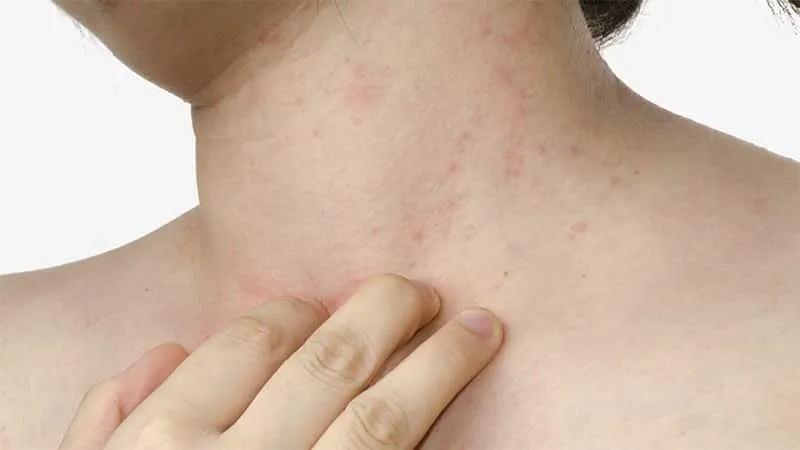Allergies in humans are a common occurrence. The main list of irritants is familiar to many: pollen, pet dander, certain foods. Carrots are not among the most common allergens, but that doesn’t mean they can’t trigger a reaction.
In this article, we’ll discuss whether carrot allergies exist, their symptoms, who is at risk, when to seek help, and how to prevent adverse effects.
Table of contents
Allergen F31 – Carrot
So, is carrot truly an allergenic food or not? To answer this question, we need to examine its composition. Allergic reactions in humans are triggered by the protein group RP-10. Carrots contain elevated levels of these substances. Despite this, carrots themselves are not allergens, and they do not typically cause food allergies.

During pollen allergy flare-ups (hay fever), our immune system is in a critical state. It struggles to differentiate between foreign allergens, especially those with a similar composition to pollen. This is when sensitivity to carrots can develop in allergy sufferers. This reaction is called cross-reactivity and occurs in people who are allergic to pollen from mugwort, dandelions, birch, or willow trees, among others.
Note. Raw carrots are more allergenic than cooked ones. This is because heat treatment reduces the levels of substances that trigger adverse reactions. Carrot juice can also negatively affect the body due to its high allergen content.
Both adults and children are equally susceptible to allergic reactions.
Risk Factors

The following factors influence the likelihood of developing an allergy:
- Heredity. Genetic transmission of allergies is quite common. If one parent has an allergy, the child has a 50% chance of inheriting it. If both parents are affected, the probability increases.
- Urban residents. Cities have significantly more allergy sufferers than rural areas. Polluted air weakens the immune system.
- Respiratory infections. People with respiratory infections are more prone to developing pollen allergies, which can later lead to cross-reactivity.
Main Causes of Carrot Allergy
Allergic reactions can arise due to various reasons:
- Additives, preservatives, and artificial colors in store-bought products. These often contribute to food allergies, as the body becomes highly vulnerable.
- Individual intolerance.
- Overconsumption. Excessive carrot intake can trigger allergies, especially in people with diabetes or high blood sugar levels. The natural sugars in carrots can worsen symptoms and cause rashes.
- Eating raw carrots. They contain higher levels of potential allergens.
- Genetic predisposition.
- Cross-reactivity. Existing pollen allergies.
- Immature digestive enzymes. Infants' digestive systems develop gradually, so introducing carrots should occur no earlier than 7 months after birth.
- Allergy to beta-carotene (vitamin A) in children.
Symptoms of Allergy
Symptoms vary depending on age and individual sensitivity. Reactions range from watery eyes to breathing difficulties.

Signs in adults:
- skin rashes, itching, blisters, red patches;
- eye inflammation – itching, redness, swollen eyelids, light sensitivity;
- mouth irritation – gum inflammation, burning lips and tongue, tingling sensation;
- digestive issues – cramps, constipation, nausea, vomiting;
- runny nose, coughing, shortness of breath.
In children, symptoms include:
- digestive problems – loss of appetite, vomiting, bloating, diarrhea;
- oral irritation – burning, itching, swelling;
- runny nose, coughing, breathing difficulties;
- skin inflammation, dryness, crust formation.
These symptoms may appear immediately after consuming carrots or after some time.
Complications of Carrot Allergy
Allergic reactions can range from mild to life-threatening:
- Anaphylactic shock. Causes breathing difficulties, a sudden drop in blood pressure, and severe headaches. May lead to unconsciousness, coma, or even death.
- Angioedema (Quincke’s edema). Severe swelling, including the throat lining, leading to breathing difficulties and abnormal coughing. Requires immediate emergency care.
- "Blue baby" syndrome. Excessive carrot consumption increases nitrate levels in children, causing oxygen deprivation. The child may suddenly struggle to breathe, with bluish discoloration around the lips and nails.
To prevent severe outcomes, always inform others about your allergies in unfamiliar settings. This ensures prompt emergency assistance.
Diagnosis
If you suspect an allergy, consult an allergist. Standard diagnosis involves venous blood tests, but the most accurate results come from comprehensive testing:
- Skin prick tests. Allergen extracts are applied to the forearm, and reactions (redness/swelling) indicate sensitivity.
- Antibody tests. Blood tests detect allergy-triggering proteins.
- Provocation tests. Allergens are introduced under medical supervision to observe reactions (nasal, oral, or bronchial).
- Elimination tests. Suspected allergens are removed from the diet to monitor symptom changes.
After diagnosis, the doctor prescribes appropriate treatment.
Treatment
Depending on severity, treatment ranges from emergency care to home remedies.
Emergency Care
If symptoms appear suddenly, rinse your face and mouth, drink plenty of water. In cases of anaphylaxis or angioedema, call emergency services and take antihistamines as advised.
Pharmaceutical Treatments

Common allergy medications:
- Nasal sprays or eye drops (e.g., Cromoglicic acid).
- Tablets (e.g., Montelukast, Fexofenadine).
- Syrups or oral solutions (e.g., Desloratadine).
- Topical creams for skin reactions.
- Enterosorbents (e.g., activated charcoal or medical gels).
Dietary Adjustments
A hypoallergenic diet helps reduce reactions. Avoid:
- citrus fruits;
- chocolate;
- nuts;
- carbonated drinks;
- alcohol;
- processed juices.
Replace with:
- green tea;
- apples;
- lean meats (e.g., turkey);
- vegetable soups;
- non-allergenic vegetables.
For breastfeeding infants, mothers should follow dietary restrictions and increase water intake to flush out allergens.
Home Remedies
Effective natural approaches:
- Detox infusion: Steep 1 tsp dill flowers in hot water for 40 mins. Mix with herbal blend (strawberry leaves, wormwood, nettle, burdock, dandelion root). Drink 3x daily.
- Anti-rash remedy: Steep 1 tbsp dried nettle in hot water for 30 mins. Consume before meals.
Preventive Measures
To minimize risks:
- Avoid carrots and carrot-based products.
- Carry prescribed medication.
- Limit sugary, salty, and fried foods.
- Stay hydrated.
- Maintain hygiene.
- Spend time outdoors and ventilate living spaces.
- Manage stress levels.
Testimonials
The methods described here have helped many manage their allergies effectively.
Sophie, Berlin: "My son has pollen allergies, but we never expected carrots to trigger a reaction. He first reacted to carrot juice, luckily with just a skin rash. Now we always carry medication."
Emma, Paris: "Both my husband and I are allergic to carrots. While pollen allergies persist, dietary adjustments from this article helped us manage food reactions naturally."
Conclusion
Carrots are not a top allergen, but caution is advised, especially for pollen allergy sufferers. Consulting an allergist helps identify cross-reactive triggers early, preventing severe reactions and ensuring better health management.







